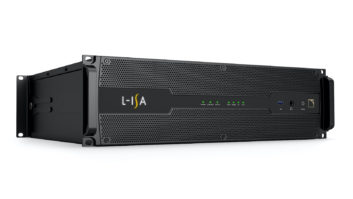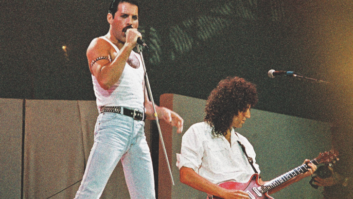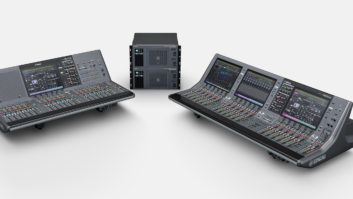August is the height of the summer, and for many sound reinforcement pros, it’s also the height of the business year, as it’s packed with concerts and events, whether at your village green or inside a massive stadium. In these divisive times, thank goodness live music is still one of the things that can bring people from all walks of life together to share an upbeat, positive experience.
Adding to those good vibes, it turns out that live shows are good for your health. A research study released in 2018 by London’s O2 Arena and Patrick Fagan, an expert in behavioral science and associate lecturer at Goldsmith’s University, found that people who watched just 20 minutes of a gig experienced a 21 percent increase in feelings of well-being. The report went on to say that “additional scholarly research directly links high levels of well-being with a lifespan increase of nine years, pointing to a direct link between gig-going and longevity.” All of which means live sound pros are going to live forever (your mileage may vary).
If concert tours are good for the heart and the mind, however, they are less beneficial for the environment. In recent years, many major touring acts have bought carbon credits as a way to offset carbon dioxide released into the atmosphere by their productions. It’s a laudable decision, but still, some industry professionals estimate a full 85 percent of the carbon footprint created by a concert actually comes from the fans who drive there—a heady amount once you get into the realm of shed/arena tours, but one that some acts are willing to account for in their efforts to mount ecologically responsible tours.
In June, the Dave Matthews Band was named a Goodwill Ambassador for the United Nations Environment Programme in recognition of how the group and its nonprofit partner Reverb have worked together since 2005 to bring an environmentally responsible bent to virtually every aspect of the group’s business, particularly its touring activities. Reverb estimates that over the course of 15 years, 20 tours and 578 concerts with the DMB, they’ve eliminated 121,000,000 pounds of CO; eliminated 478,000 single-use plastic bottles at shows; raised $2 million from fans for environmental causes; used 477,000 gallons of locally produced biodiesel in their tour fleet vehicles; and lots more.
Reverb designs a sustainability program for every stop on the band’s North American tours, looking to fuel trucks and buses with biodiesel, source food from local farms for catering, reduce use of single-use plastic items, compost and recycle backstage, and offset tour carbon emissions by helping fund the creation of projects like solar and wind energy. DMB is hardly the only band Reverb works with; this summer, the nonprofit is involved with tours by Dead & Company, Shawn Mendes, Pink, Fleetwood Mac, Heart, Guster, John Mayer, Phish and others.
Live sound pros don’t have to be on a national tour to help make a difference. One obvious move for regional and local live sound companies is to create tighter truck packs composed of smaller, lighter audio equipment. The increasing prominence of compact line arrays and modern networking systems that use simple Cat 5 cables certainly aid that effort, and ultimately less gear and less weight means less gas consumption and vehicle wear.
Likewise, if you’re in the market for new equipment, it’s not a bad idea to look at the practices of the manufacturers you’re buying from; keep an eye out for terms like “energy efficiency” and “responsible manufacturing,” as well as manufacturers who have made a commitment to sustainability by obtaining ISO 14001 certification (an environmental management system), sourcing green building materials and/or using alternative energy sources.
Simple efforts like these are all incremental, but across an industry, they add up, in turn helping create a better world for the people going to concerts next August—and all the Augusts to come.





